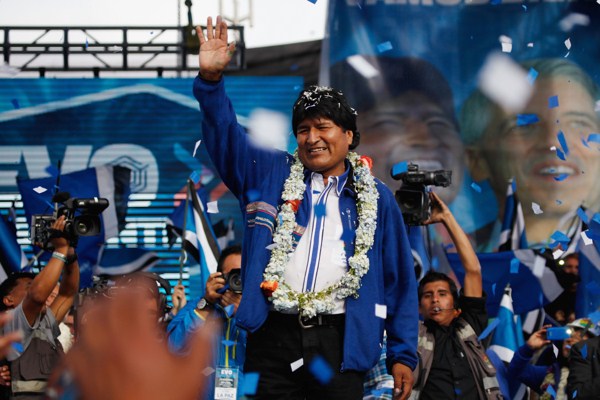Editor's Note: This is the first of a two-part briefing on Bolivia’s presidential election. Part I looks at domestic issues contributing to President Evo Morales’ success. Part II will examine the regional significance of the Morales model of governance.
Unlike elections in neighboring Brazil and Uruguay, Bolivia’s presidential race is notably lacking in drama and suspense in the run-up to voting on Oct. 12. Despite some constitutional questions surrounding his candidacy and criticisms over how much power he has amassed, President Evo Morales appears headed for a landslide victory that would make him not only Bolivia’s longest-serving president, but the incumbent with the longest tenure in Latin America. That is no mean feat for Bolivia’s first indigenous president and the former head of the coca grower’s union.
First elected in 2005 as part of what was then widely known as the “pink tide” of leftist leaders coming to power in Latin America, Morales has evolved over the past decade. His rhetoric aimed sharply at elite rule and “imperialist-sponsored” oppression has remained consistent. But Morales has proved skilled at adapting to changing circumstances and quite pragmatic in accommodating key business groups, all while managing the country’s wealth—largely derived from natural gas reserves that are South America’s largest after Venezuela—to benefit most Bolivians, including the majority indigenous population.

